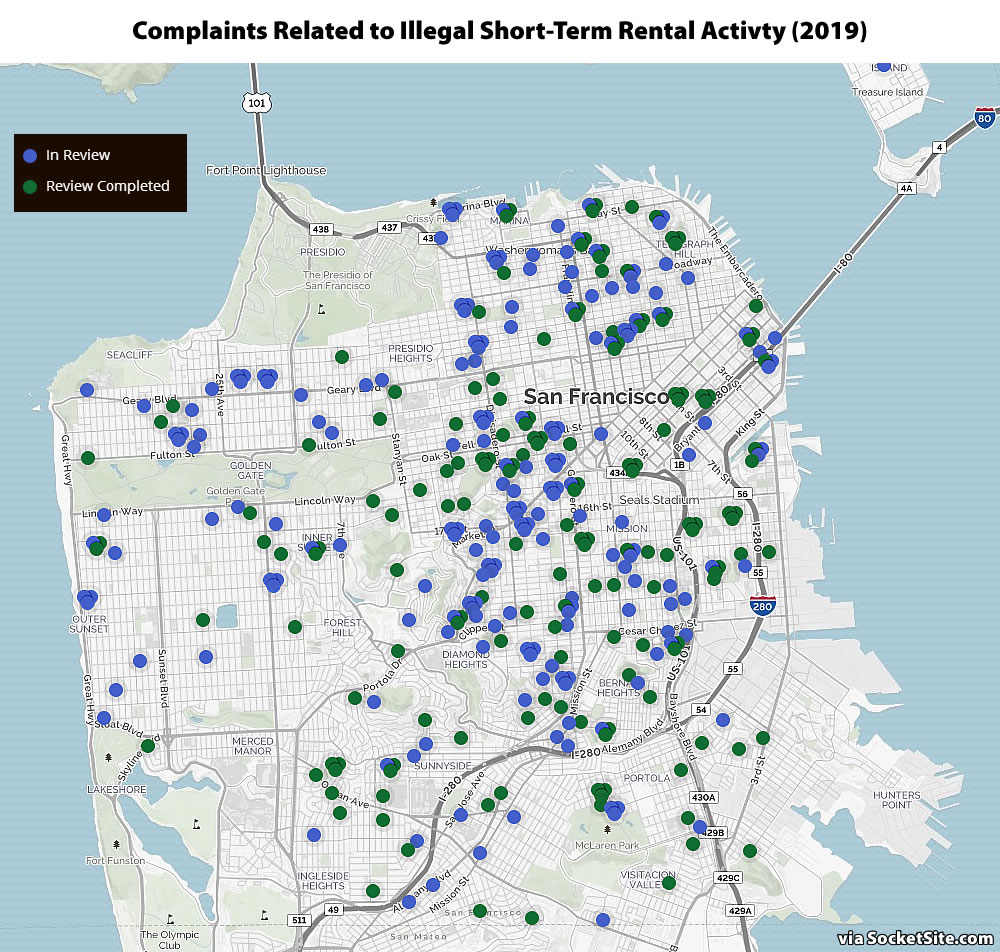While the number of formal complaints related to illegal short-term rental activity in San Francisco had been on the decline since the second quarter of 2016, following the passage (and eventual enforcement) of San Francisco’s short-term rental law, said decline came to end in the second quarter of last year.
In fact, the number of formal complaints in the fourth quarter of 2019 (116) was nearly four times the number in the fourth quarter of 2018. And the total number of complaints last year was over 300 and nearly 30 percent higher than in 2018 (having dropped 50 percent from 2017).
At the same time, while Airbnb hasn’t released any official stats, according to a number of plugged-in readers with legally registered units, the impact of COVID-19 is really starting to hit home (in terms of cancellations and a slowdown in reservations).

Hi there, where is this data from? Are these complaints submitted fo the OSTR (office of short term rentals)?
Our analysis is based on queries of the City’s complaint and enforcement database. Each complaint is investigated by the City’s Office of Short-Term Rentals (OSTR).
Everyone breaks the laws with impunity in this city….. why should one sub group be singled out ?
That’s the problem with law breakers, they think everyone else is doing it.
this is just a minor quality of life issue; It is readily apparent that woke San Francisco should not bother with anything in the quality of life arena.
The condo building near us is almost all illegal Airbnb’s. The building has become an eyesore and the sidewalk around the property is filthy. The city’s enforcement is toothless and almost structured to aid and abet illegal rentals.
From just this past Thurs, Airbnb’s Loss Nearly Doubles in Fourth Quarter, Before Virus:
Perhaps, just perhaps, Airbnb will have to delay their long-awaited IPO, many of the illegal hotel operators will throw in the towel in the next several months, and sell their real estate holdings to either legitimate local landlords or to any of the local folks in need of housing we keep hearing about.
Ah, but you omitted the next line (revenue rose 32%): so now if their revenues actually fall they might become profitable.